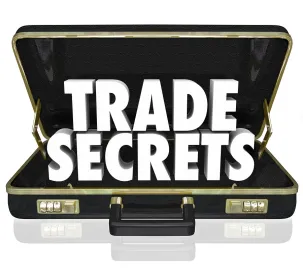Governor Abbott recently signed HB1995, which amends the Texas Uniform Trade Secrets Act (“TUTSA”). The amendments change the four-year old Texas trade secret statute due to two events that have occurred since the September 1, 2013, passage.
First, in 2016 the Defend Trade Secrets Act (“DTSA”) was enacted and created a federal cause of action for misappropriation of trade secrets. DTSA is largely based on the Uniform Trade Secrets Act and thus is similar to the Texas statute. However, there were differences in the definitions of “trade secret” and “owner” that could have led to different results under the two statutes in certain situations. Therefore, the definitions of “trade secret” and “owner” in the Texas statute are being amended to harmonize them with the DTSA. This should promote uniform application of trade secret law and perhaps discourage forum shopping between state and federal courts.
Second, in 2016 the Texas Supreme Court decided the case of In re: M-I, LLC (No. 14-1045, 2016 Tex. LEXIS 389 (Tex. May 20, 2016)). The Supreme Court reversed a trial court’s holding that a corporate representative could be excluded from a hearing wherein the opposing party’s trade secrets were being presented. In doing so the Court held that there is a presumption that a party is allowed to participate and assist counsel in a trade secret case and that this presumption can only be overcome if the court balances several factors. The amendment to the Texas statute will codify this balancing test as follows:
a presumption exists that a party is allowed to participate and assist counsel in the presentation of the party's case. At any stage of the action, the court may exclude a party and the party's representative or limit a party's access to the alleged trade secret of another party if other countervailing interests overcome the presumption. In making this determination, the court must conduct a balancing test that considers:
-
the value of an owner's alleged trade secret;
-
the degree of competitive harm an owner would suffer from the dissemination of the owner's alleged trade secret to the other party;
-
whether the owner is alleging that the other party is already in possession of the alleged trade secret;
-
whether a party's representative acts as a competitive decision maker;
-
the degree to which a party's defense would be impaired by limiting that party's access to the alleged trade secret;
-
whether a party or a party's representative possesses specialized expertise that would not be available to a party's outside expert; and
-
the stage of the action.
The above amendments to the Texas trade secret statute go into effect on September 1, 2017.





 />i
/>i
